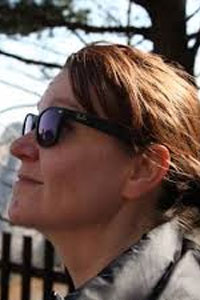The Ministry of Education recently announced it will put increased focus on morals, history and civil duties in the school curriculum by mid-2017.
This plan may be the right way to bring about change to Thai education — but only if the concepts of morals, history and civil duties as part of education are transparently defined in the light of recent research on modern education.
Moral education, history and civil duties education have great potential to develop a keen understanding of one's own cultural norms and expectations and, at the same time, an understanding of the concept of globalisation and world history.
I agree with other educators that it is important for students to master today's technological tools. The difference between the so called traditional tools (using paper, blackboard or whiteboard and pens) and the new technology is that the digital tools offer a wider variety of ways to search, gather, examine, analyse, produce, present, share and create information and ideas. Technological devices can serve as important learning tools as they are able to offer multiple perspectives as well as varied ways of communicating for the students.
However, these tools, no matter how smart they are, should not be confused with goals of education. Learning tools should be chosen based on the learning goals; the best tools are those that best help us achieve those goals.
Education is future-oriented and based on a vision of a better world. Based on current education literature, an important condition for finding solutions is a clear value basis, plus moral and ethical foundations.
Questions related to education are deeply philosophical: they concern the meaning, nature, methods, and ideals as well as ethical aspects of education. With the accumulating empirical factual knowledge from the field, these questions have become very complex.
I suggest that a philosophy of education in the 21st century should carefully consider why and by whom various values and competences are defined as learning goals. I also suggest carefully examining the ways in which we create knowledge about ourselves, about others, and about our environment, and examining also the ways people use this knowledge to solve problems and to communicate with each other.
It is important to evaluate not only what this knowledge is and what these competences and values are, but how the knowledge, competences, and values are created and legitimised.
Nation states' and their citizens' adaptation to change and technological skills will certainly help in the process. Modern technology will help students take part in constructing their present and future life. A good example is a recent article in the Bangkok Post about a Mathayom 6 student who returned a blank paper for her exam on "civic duties" as she was unable to choose the assumed "correct" answers because they portrayed something she does not believe in.
The student's action reflects what American educator James A Banks calls "a social action approach" as part of "transformative citizenship", which refers to students making decisions on important social issues and taking actions to help solve them.
We tend to be prisoners of our own history and our cultural backgrounds. Teaching social action and transformative citizenship is a huge challenge for any nation's educational reform as it concerns re-evaluation of our assumptions about the nature of the social world and about the nature of warranted social knowledge; it requires seeing the pluralistic nature of a culture as well as the global connections and influences. It paves a way to individual as well as to societal change.
Awareness of multiple perspectives and different knowledge can be increased and new ways of thinking and acting can be learned. If this is the approach, then morals, history, and civil duties education would offer a great basis for that. The big question is: what kind of educational reforms are we able and ready to be engaged with?
Anna-Kaisa Pudas is an educator with over 20 years of experience in the field of education in Finland and Thailand. Her PhD dissertation is on global education.
